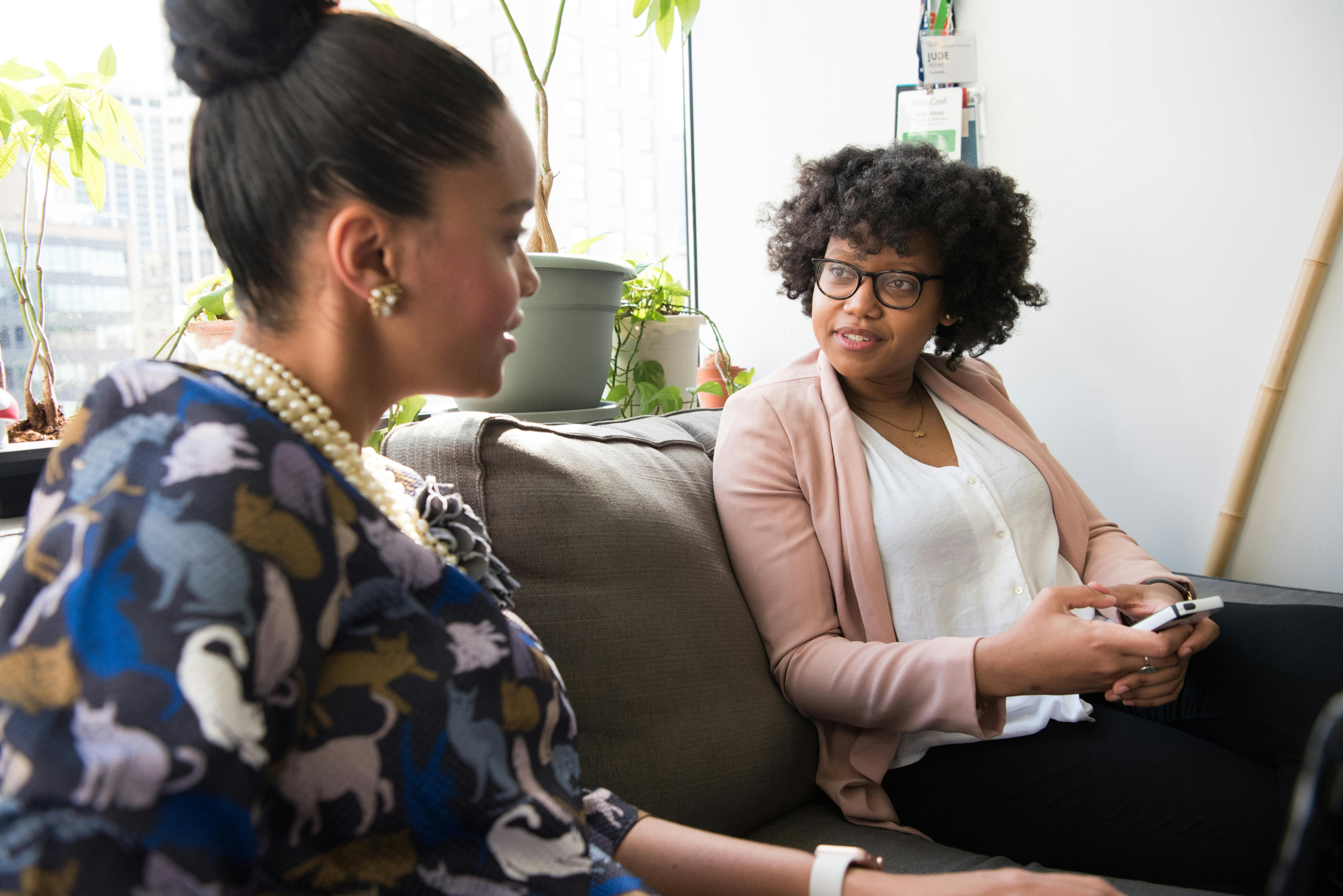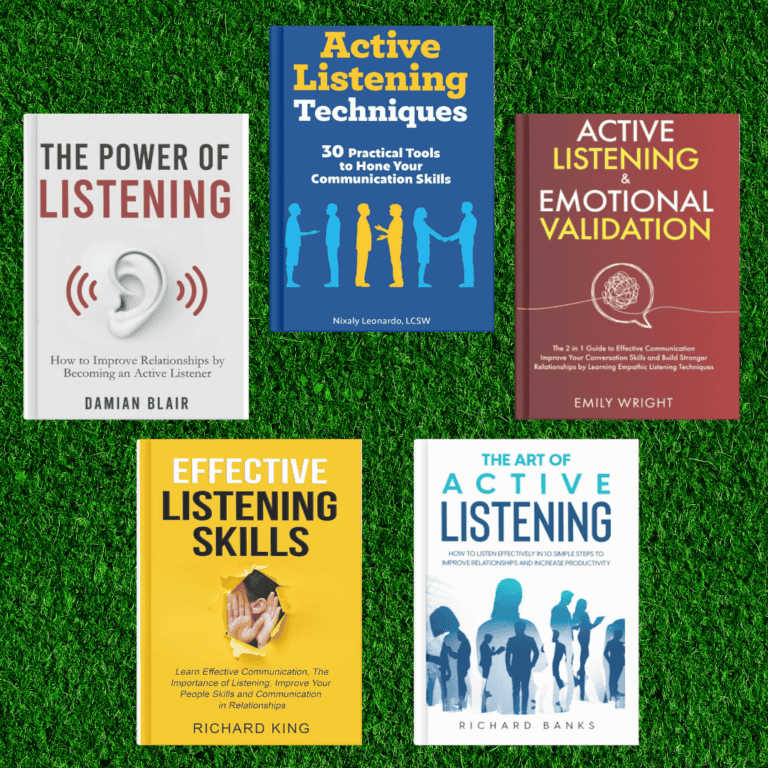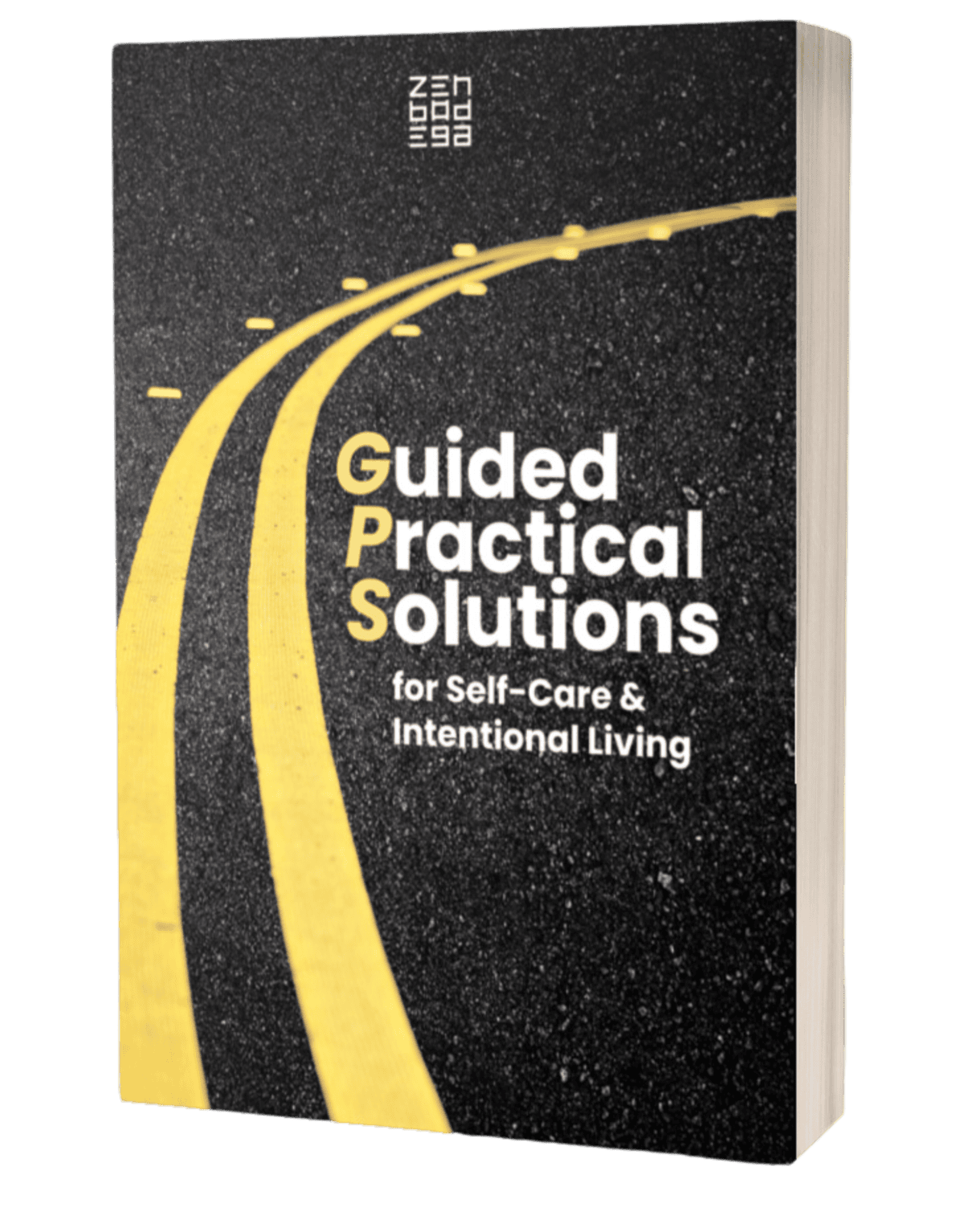Intentional Living: How to Steer Clear of 6 Empathetic Listening Pitfalls
Have you ever wondered what it truly means to understand others on a profound level? I mean, have you truly connected with someone on a genuine vibe – without judgments or fears of being rejected?
In this article, let’s talk about empathetic listening, a practice that goes beyond mere hearing and has the power to nurture the deepest connections in both your personal and professional life.

Blunder 1: Making Assumptions
Making assumptions is when you talk to someone and your brain jumps to conclusions about what they’re thinking or feeling before they even tell you. It’s like your brain on autopilot, making quick guesses without really knowing. Well, we all do it, but here’s the thing: doing this can mess up your empathetic listening.
Why Making Assumptions Is a Problem
Imagine you’re having a chat with a friend, and they mention they’ve had a tough day at work. Without thinking, you jump to the conclusion that it’s because of a disagreement with a coworker. But what if the real issue was a heavy workload or something personal?
Making assumptions is like putting on blinders; it limits our ability to truly understand others. This blunder can mess up our empathetic listening because it stops us from seeing the whole picture. Instead of having an open and meaningful conversation, we end up projecting our own thoughts onto the situation, which can lead to misunderstandings and missed chances to connect.
How Assumptions Can Get in the Way of Good Listening
When we assume we know what someone is thinking or feeling before they tell us, it can hurt our empathetic listening in a few ways. It can block open communication and make the conversation feel judgmental rather than understanding.
For instance, at work, assuming a coworker is uninterested in a meeting can strain your working relationship. In personal talks, assuming you understand what a friend wants before they say it can cause miscommunication and missed opportunities to connect. In simple terms, making assumptions can be a big roadblock to empathetic listening.
How to Stop Making Assumptions
So, how can we avoid this blunder and become better at empathetic listening? It begins with being curious and open-minded. Instead of guessing, try active listening. Ask questions to get a clearer picture and understand better.
When someone shares their thoughts or feelings, resist the urge to assume or judge. Instead, focus on what they say and how they feel, giving them the space to express themselves fully. By using these strategies, you can improve your empathetic listening skills and build stronger, more genuine connections with those around you.

Blunder 2: Interrupting the Speaker
Ever found yourself in a conversation where you just couldn’t wait for your turn to speak, so you interrupted the speaker? We’ve all been there, but let’s talk about why this habit isn’t ideal when you’re trying to live more intentionally. Interrupting can derail a conversation and make the other person feel like their thoughts aren’t important.
Why Interrupting Is a Problem
Interrupting is a problem because it can make the other person feel like what you want to say matters more than what they want to say. Imagine you’re in a conversation, and when someone interrupts you, it’s like they’re saying, “My thoughts are more important than yours.”
This can hurt their feelings and make them think you don’t care about what they have to share. Additionally, when you interrupt, you might not hear the valuable things they wanted to tell you.
The Consequences of Interruptions on Empathy and Understanding
Empathy means understanding how someone feels, and it requires being patient and paying attention. When you interrupt someone, it’s like stopping the movie you’re watching with them. You miss out on the emotions and perspectives they were sharing. It’s similar to watching a movie with someone who keeps pausing it – you can’t fully experience the story, and it can make it harder to connect with the other person.
Tips to Stop Interrupting the Speaker
Instead of interrupting, try giving the speaker some space. Focus on their words, not on what you want to say next. Sometimes, a little silence can make the conversation deeper and more meaningful.
So, let’s explore how patience and attentive listening can lead to better and more intentional conversations with the people in your life.

Blunder 3: Focusing on Your Response Instead of Listening
We’ve all been in conversations where we’re more worried about what we’ll say next than really listening. It happens, but let’s talk about why this habit can mess up intentional living and empathetic listening.
The Difference Between Listening and Waiting to Speak
Listening means being fully present and paying attention to the person speaking. But sometimes, we’re too busy thinking about what we’ll say next, and we miss important stuff they’re sharing. It’s like watching a movie with the remote control in your hand, always thinking about pausing it.
The Effects of Preoccupied Listening on Empathy
When you’re not fully tuned in while listening, it means your mind is busy thinking about what you want to say next instead of paying complete attention to the person speaking.
This distraction can disconnect you from their emotions and ideas. It’s like reading a book but skipping ahead to the last chapter. You might miss the important details and surprises in the story.
In conversations, this distracted way of listening can make your interactions seem shallow. You’re physically there, but you’re missing out on the depth and richness of the experience.
Techniques for Staying Present and Attentive
To fix this blunder, try staying in the moment. Listen with your full self, without hurrying to get ready with what you’ll say next. Pretend you’re really into an exciting story, and you don’t want to miss a single detail. Take a breath, and don’t be in a rush to hit the pause button on the conversation.
These tricks will help you become a better empathetic listener and have deeper, more meaningful talks in your intentional living journey.

Blunder 4: Minimizing or Dismissing Feelings
On our journey to intentional living, we sometimes make the mistake of not taking other people’s feelings seriously. This can be a problem in our relationships and personal growth. Let’s see why it’s important to recognize and understand the emotions of the people we talk to and how it can make us better at empathetic listening.
The Harm Caused by Minimizing or Dismissing Feelings
When we brush off or make light of someone’s feelings, it can really hurt them. They feel like we don’t care about what they’re going through, and it can make them less likely to share their thoughts and feelings with us. This can harm our trust and make it tough to connect with others, whether it’s in our personal or work life.
Recognizing and Validating Feelings in Empathetic Listening
Empathetic listening isn’t just about hearing words; it’s about understanding the emotions behind them. Recognizing and respecting these feelings is crucial for building trust and empathy. It’s like giving a friend a comforting pat on the back when they’re feeling down – a simple gesture that can mean a lot.
How to Show Genuine Concern and Understanding
To avoid this blunder, try active listening. Show that you genuinely care and get what the other person is feeling. Ask questions that help them express themselves, and offer support and empathy. By doing this, you can build stronger, more real relationships and make intentional living a part of your everyday interactions.

Blunder 5: Over-Relating and Shifting the Focus to Yourself
On our path to intentional living and better listening, one common mistake is talking too much about ourselves. This can get in the way of truly connecting with others. Let’s talk about why it’s important not to make conversations all about you and how to strike the right balance between showing empathy and keeping the spotlight on the other person.
The Problem with Making Conversations About Yourself
Imagine you’re at a concert, and the opening act starts acting like the main event. It overshadows the headliner, and the show loses its charm. That’s a bit like what happens when we make every conversation about us – it can make the other person feel less important.
Balancing Empathy with Maintaining Focus on the Speaker
Empathy is about understanding and connecting with someone else’s feelings and thoughts. But it’s crucial to find a balance between being empathetic and making sure the conversation stays focused on the other person. Think of it like a seesaw; if one side tips too much, things get unsteady.
Ways to Keep the Conversation Centered on the Other Person
To avoid this blunder, try active listening. Ask questions that encourage the other person to share their thoughts and feelings. Show real interest in what they’re saying, and resist the urge to always bring it back to your own experiences. By doing this, you can become a better listener and create more meaningful connections as you embrace intentional living.

Blunder 6: Offering Unsolicited Advice
On our journey to intentional living, it’s important to avoid one common mistake: giving advice when it’s not asked for. While our intentions may be good, this can get in the way of truly listening and connecting with others. Let’s talk about when to hold back on the advice, why it’s important, and how to be helpful without pushing solutions.
Understanding When Advice is Not Needed
Sometimes, people just want to talk and share their thoughts and feelings without looking for answers. When we jump in with advice, it can make them feel like we’re not really hearing them. Think of it like when a friend tells you about their bad day – they might just want to vent, not have you fix everything.
The Importance of Providing Space for Self-Reflection
Empathetic listening means giving the other person the room to think and feel. Offering advice too quickly can stop this important self-reflection. It’s like interrupting someone who’s lost in thought.
How to Offer Support Without Imposing Solutions
To avoid this blunder, focus on being a supportive presence. Listen actively, ask questions to help them explore their feelings, and let them lead the conversation. Sometimes, just showing that you’re there to listen and understand can be the most helpful thing on your journey to intentional living.

Implementing Empathetic Listening in Daily Life
Now that we’ve covered what to avoid and the basics of empathetic listening, let’s get practical. How can you put empathetic listening into action in your daily life? In this section, we’ll explore simple exercises to improve your listening skills, the role of mindfulness in becoming a better listener, and how setting intentions can make your interactions more meaningful.
Practical Exercises for Improving Empathetic Listening Skills
Getting better at empathetic listening is a bit like getting in shape – it takes some practice. We’ll share exercises and techniques you can easily incorporate into your daily routine. These exercises will help you become a more empathetic listener in your everyday conversations.
Mirror Body Language: Pay close attention to the speaker’s body language during conversations. Try to mirror their posture, gestures, and facial expressions subtly. This helps create a sense of connection and shows that you’re fully engaged as an empathic listener.
Emotional Check-In: During or after a conversation, take a moment to reflect on your own emotions and how the interaction affected you. Consider how the speaker’s feelings may have influenced your own. This exercise helps you connect with your own emotional responses and gain insight into the speaker’s emotions.
Empathic Listening Techniques: Practice specific empathic listening techniques, such as paraphrasing or summarizing the speaker’s words to ensure you’ve understood correctly. For example, you can say, “So, what I hear you saying is…” This demonstrates effective listening and helps the speaker feel heard.
See from Their Perspective: Challenge yourself to see the situation from the other person’s perspective. Try to understand their motivations, concerns, and feelings. Imagine how you would feel in their shoes. This exercise boosts your emotional intelligence and enhances your ability to listen empathetically.
Reflect and Learn: After a conversation, take a few minutes to reflect on what went well and what could be improved in your empathetic listening. Identify any moments where you may have faltered or missed an opportunity to connect on a deeper level. Learning from these experiences will help you grow as an empathic listener.
Practice with Empathy: Engage in everyday interactions with friends, family, or colleagues with the intention of practicing empathetic listening. Make it a habit to actively listen, validate their feelings, and provide emotional support. Over time, this will become second nature, and you’ll become known as someone who listens empathetically.
The Role of Mindfulness in Enhancing Empathy
Mindfulness, which is about being fully present in the moment, can play a big part in empathetic listening. We’ll explore how being mindful can help you understand and connect with others’ thoughts and feelings better. It’s like being right there with the people you’re talking to.
Setting Intentions for More Meaningful Interactions
Before diving into conversations, try setting clear intentions for what you want to achieve. We’ll discuss how having a purpose and goals for each interaction can lead to deeper and more meaningful connections. Think of it as having a roadmap that guides you toward better understanding and connection in your everyday conversations.

Conclusion
So, let’s sum it all up. We’ve talked about some common mistakes we can make when trying to listen and connect with others. Things like assuming we know what someone is thinking, interrupting them, or being too focused on what we want to say next. These blunders can get in the way of good conversations.
But here’s the good news: by avoiding these errors, we can make our connections with others more meaningful. It’s like improving our communication skills and becoming better listeners. Empathetic listening is a powerful tool for living a more intentional life.
Here’s my challenge for you: put these ideas into action. Try really listening when someone talks to you, be mindful in your conversations, and set goals for better interactions. This isn’t just about making your life better; it’s about making the world a kinder and more understanding place.
Think of empathetic listening as your guide on the journey to living more intentionally. It’s like having a compass that helps you be a better friend, family member, and community member, one conversation at a time.







